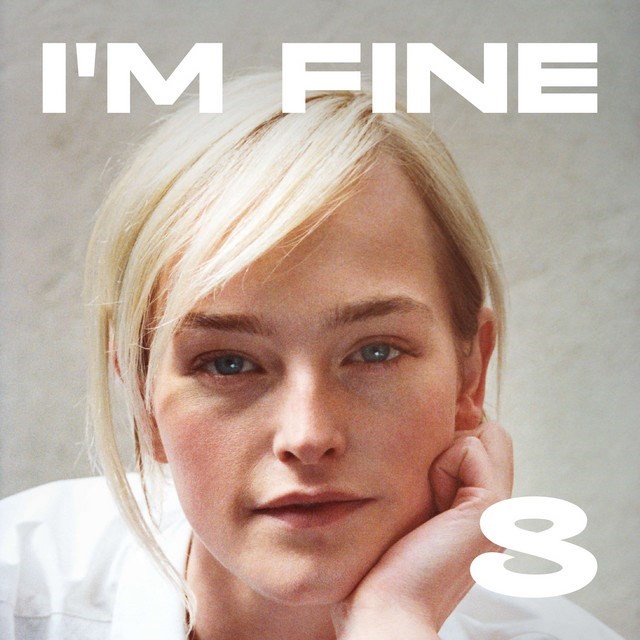Launched by model and chronic pain advocate Jean Campbell, I’m Fine voices and breaks down the silence shrouding pain in all its myriad forms
Pain doesn’t discriminate – emotional, physical, and mental adversities are the fabric of life – yet it’s still uncomfortable to talk about, to admit vulnerability within our society, which is hellbent on toxic positivity. With her new podcast I’m Fine (a nod to the harmful grin-and-bare-it façade that so many of us feel we must adopt in times of hardship), model and chronic pain advocate Jean Campbell delicately voices and breaks down the silence shrouding the subject. “33 per cent of our global population live alone with chronic pain. And no one is immune to pain,” she says. “So the podcast is about people being heard. Giving voice to the good days, the bad days, and everything in between.”
Campbell is no stranger to pain: at the age of 12, she endured an accident requiring complex surgery. By the age of 16, pain had crept back into her life – this time as hip dysplasia, a complex condition needing several shattering surgeries and endless rehabilitation. “I found suddenly not having any control over my body, over the way I responded to what was going on, and how I felt emotionally, excruciating,” she recalls of the brutal dichotomy it cleaved between her work as a model and her internal reality (Campbell has appeared in campaigns for Burberry, Louis Vuitton and Bottega Veneta). Despite surgery, the pain endured, and so did her attempts to silence and override it. “Until one day, I kind of just accepted that this is tough,” she says, “and with this small shift I began to be open to receiving help, to consider, ‘OK, how am I actually going to live like this?’”

Campbell’s story is just one of the many narratives of pain that she holds space for on her podcast. “I wanted to have subjects that are more general as well as things that are niche and specific to that person,” she explains of the diversity of interviewees. There are physical tangible cases, like her own, and stories of ‘invisible’ pain, like the just-released episode in which she speaks with model agent Richard Habberley on his journey with addiction. By considering pain in all of its different textures, Campbell reminds us “that it’s very unusual that you experience the physical without psychological pain or psychological pain without physical implications.”
If the podcast’s focus may, at first glance, seem gloomy, it is in no way about fixating on the problem. “It’s about stories of inspiration, of information, and showing where light can be found amidst the darkness,” says Campbell. “What I’ve noticed is that where you do have darkness, if you are prepared to hold its hand and accept it, you can turn that into light as well.” An upcoming episode with stylist George Cortina talks through his experience of living through the Aids epidemic as a young man in New York in the 80s and the incredible grief he had to work through. “To talk to people who’ve had more experience in life than you, who’ve lived through so much, opens up so much wisdom and hope,” Campbell explains of the episode.

One of the most powerful aspects of I’m Fine is the incidental exploration of the language of pain. During the worst days of her own journey, Campbell recognised that she didn’t have the language to express what was happening. “Which meant that I had no way of getting help,” she says. Pain is personal yet often flattened in medical contexts to silly scales of one to ten (a topic she discusses in her thought-provoking episode with Dr James Flowers, an expert in chronic pain). By facilitating her interviewees to tell their stories in their own words, Campbell broadens the vocabulary around pain and therefore the ability to feel one’s body and experience. “By talking about your pain, by being vulnerable, you are not admitting defeat,” she says. “In doing so, you can take away the power from the pain and become open to connection once more.”
With listeners in over 85 countries, the podcast has already achieved what Campbell hoped for: a community of listeners and an opportunity for connection. The model has recently also launched a SpeakPipe platform where listeners can share their own stories. To live in pain can be isolating and lonely (an agonising thing itself) but “when you’re able to connect with someone else, and hear about them, it suddenly switches on this little bit of hope,” she reflects. “And if you can have a little bit of hope and you can imagine for even just a moment that things could be different, then that is the first step to healing.”
I’m Fine is available to download through all major streaming platforms as well as via the podcast’s website. To share your own story, visit Campbell’s SpeakPipe.
